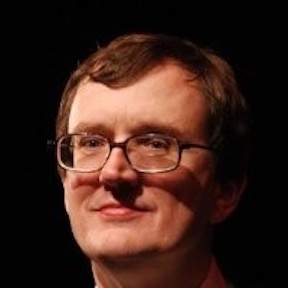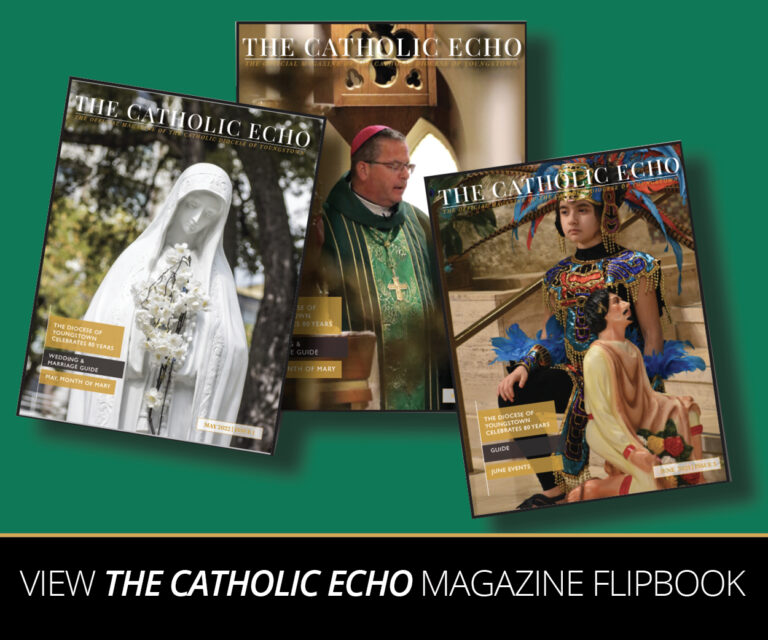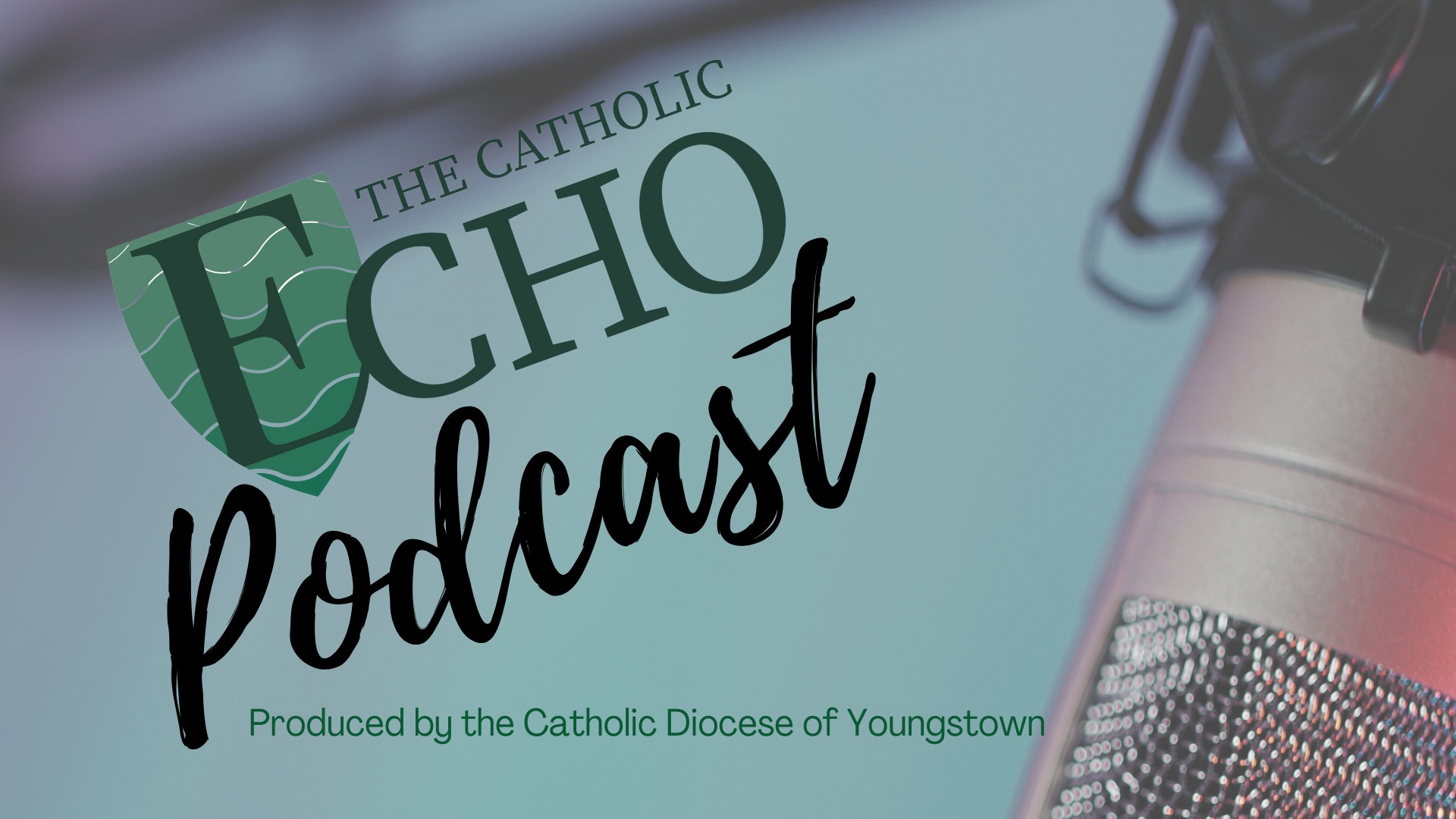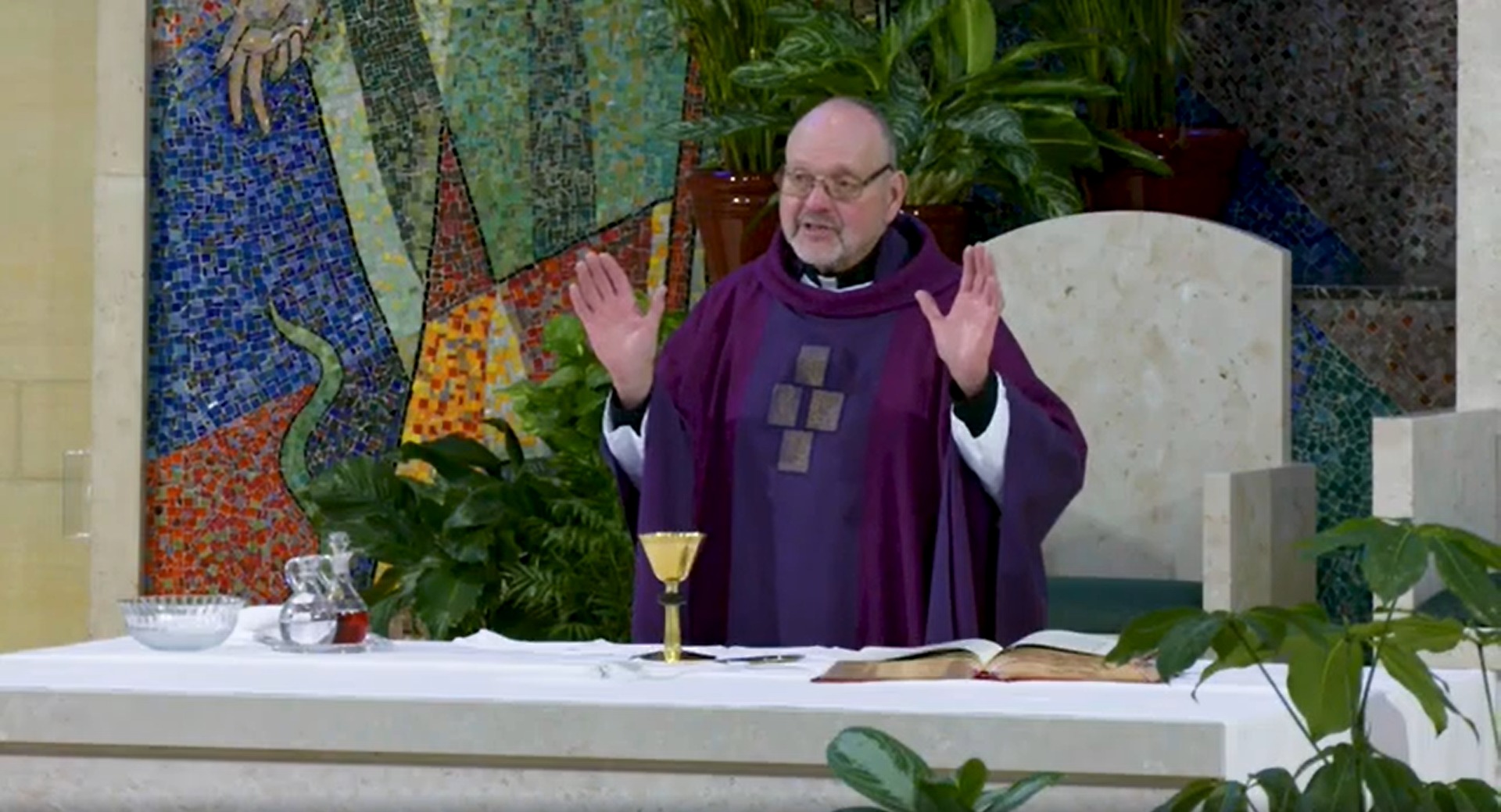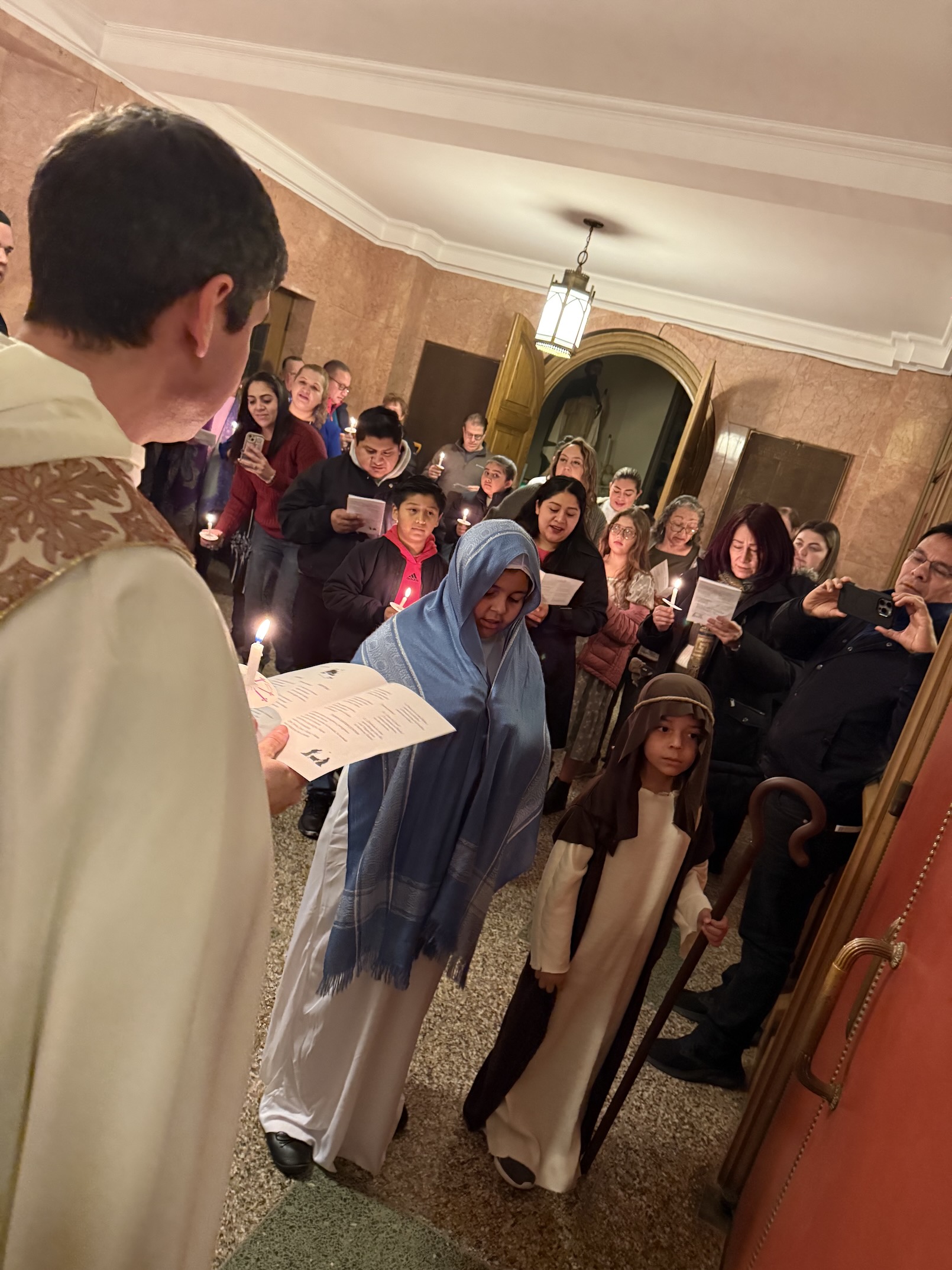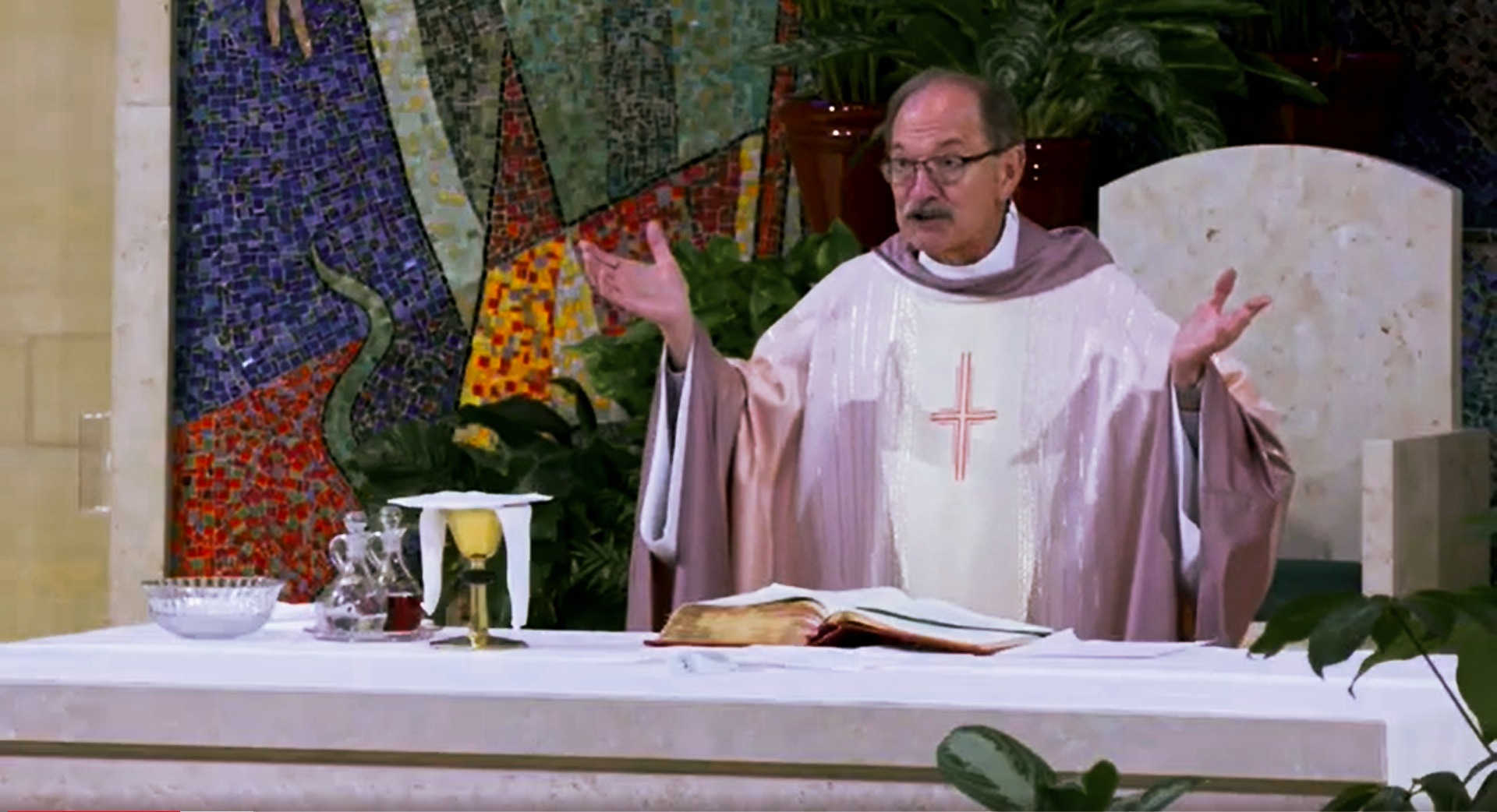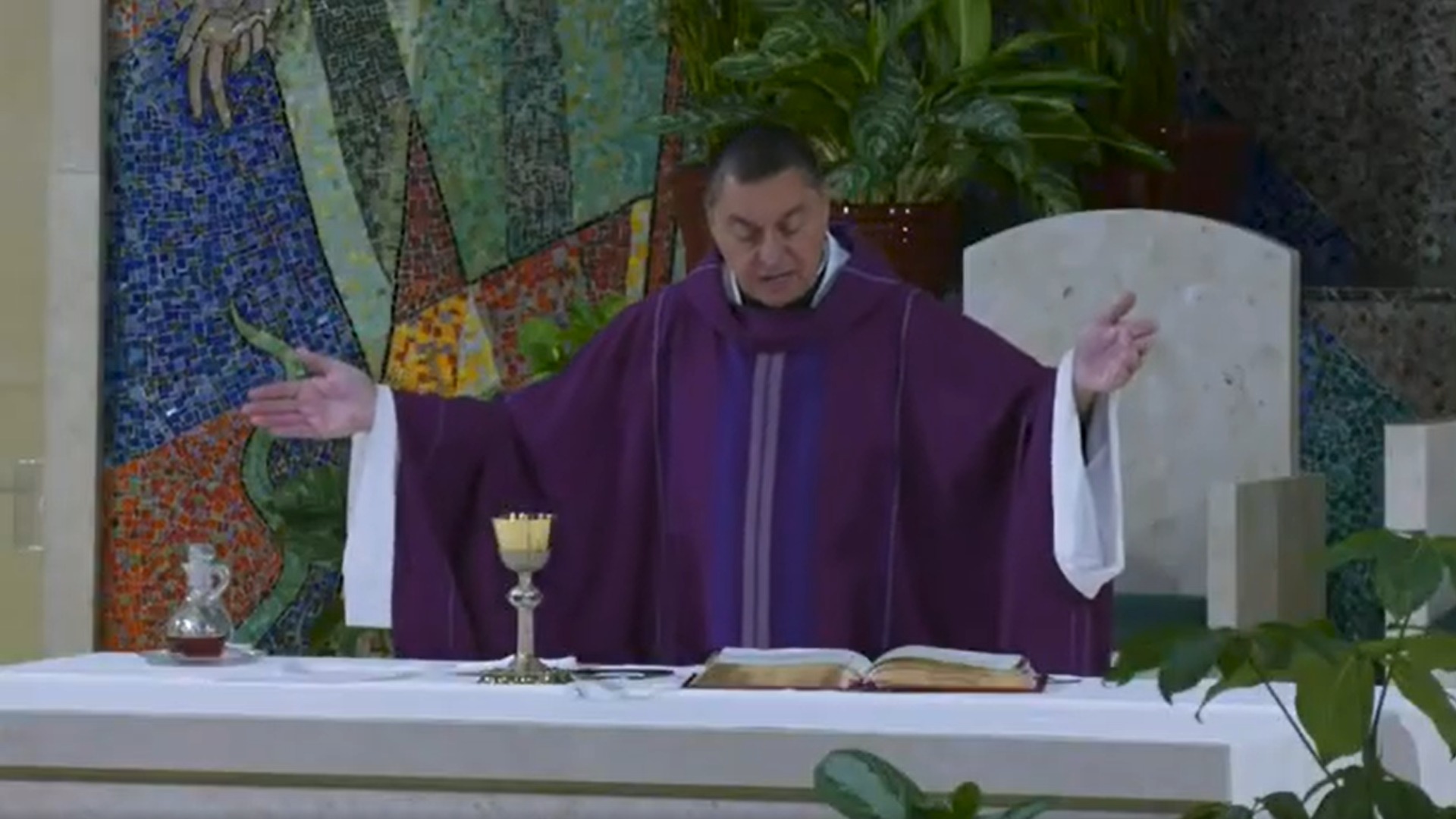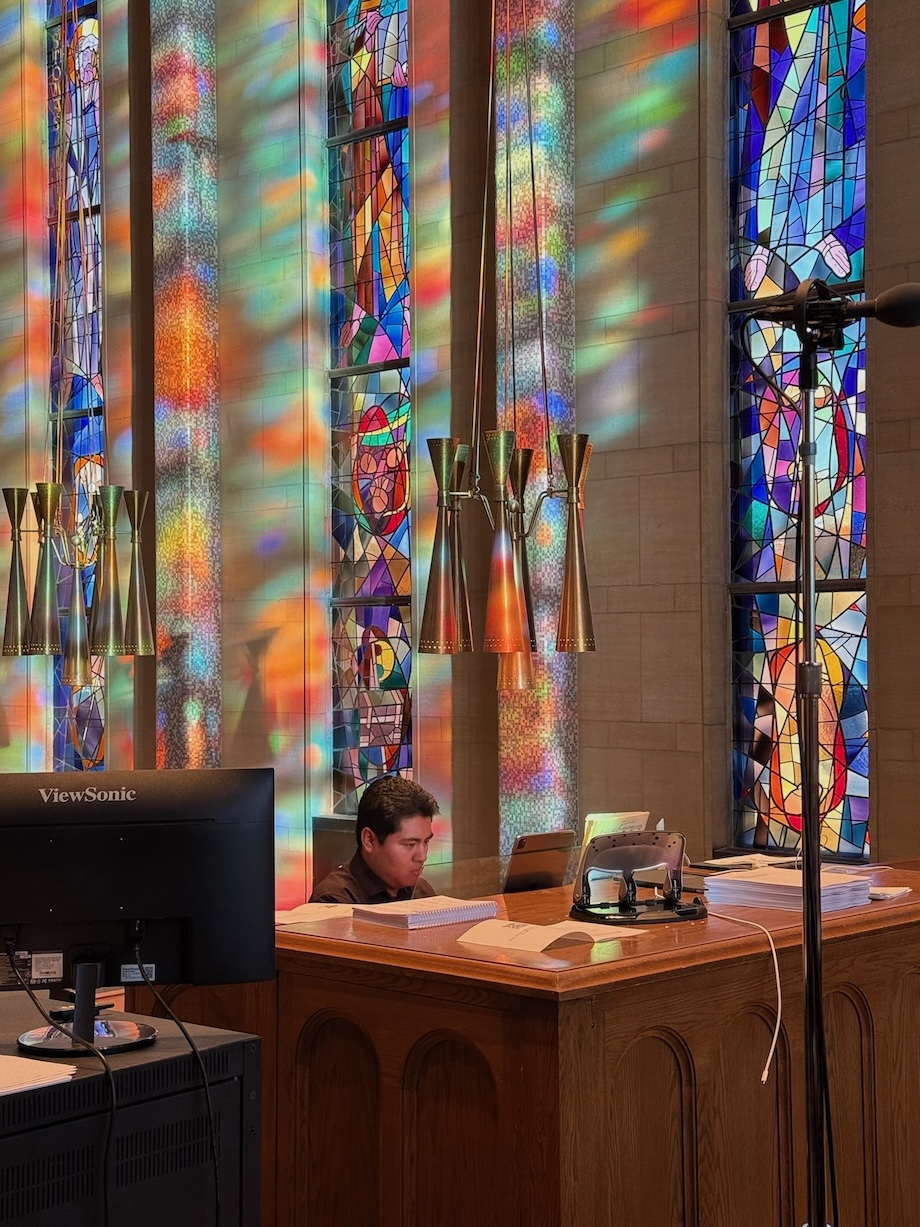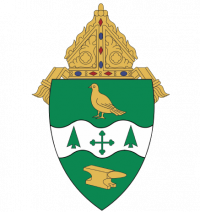
Knowing how hard people work to earn a living, the Diocese of Youngstown works equally hard to assure parishioners that their donations to support the work of the Church are safeguarded, said Pat Kelly, chief financial officer for the diocese.
The diocese has taken a broad initiative, which included hiring a diocesan compliance officer—Nick Keller— two parish auditors—Tom Onestak and James Chismar, Jr.—enhanced safeguards on parish collections and more regular scrutiny of parish finances and spending.
Kelly, who has served as diocesan chief financial officer since 2008 after a career of 25 years in banking, notes that fostering accountability and financial transparency has long been a priority both in the diocese and in the larger Church.
For example, “the 1983 Code of Canon Law specifies that each parish has a finance council,” a group of individuals unrelated to the parish’s pastor or administrator who “work with the pastor/administrator to develop the parish’s annual budget and long-range financial forecasting—including contingencies for unexpected financial challenges and opportunities,” Kelly explained.
One of his tasks has been to ensure that parishes have a finance council—an effort that he said has been largely successful.
Canon Law also requires that each diocese have a diocesan finance council, which includes diocesan officials and lay people with financial and legal experience who are appointed by the Bishop to assist in the diocese’s financial management. “We’ve had a diocesan financial council since the formation of the diocese as well as other procedures to foster financial accountability at the diocesan parish, and other Catholic institutional levels,” he said.
Still, Kelly’s experience in banking has helped him to implement additional measures and fine-tune already existing procedures—a process which continues to require vigilance and responsiveness.
John Paul, who assists with the financial management of the Stark County Catholic Schools, said that during the three decades that he has worked there, the updating of financial and accounting procedures has been significant and steady.
“When I started, we were still keeping financial records by hand, using ledger books,” Paul pointed out. “Over time, the diocese has gone to computers, developed a centralized payroll system, set up automatic withdrawal from employees’ paychecks,” and instituted other updated procedures to ensure efficient accounting.
In recent, years, Kelly noted, the diocese has been proactive in making further updates in systems and procedures—especially as a greater awareness of the need for accountability and transparency has developed both in the Church and in society.
For example, the diocese hired George Schorsten, who recently retired, several years ago as a parish auditor. His job was to visit the parishes and to ensure they are following necessary procedures.
“Each parish and diocesan entity is to follow accounting procedures established in the Financial Procedures and Control Manual and complete the required forms,” Kelly said. These are found on the diocesan website:
Regular parish audits are useful for ensuring that parishes are able to comply and are complying.
Nick Keller, the diocese’s recently hired compliance officer, had a long career in business prior to his current role. His responsibilities include working to ensure that parishes and other Catholic entities in the six-county diocese are acting in-line with diocesan policies and procedures—both in finances and other aspects of diocesan administration.
Parish auditor James Chismar—who has a bachelor’s degree and a master’s degree in accounting from Youngstown State University (YSU)—is a licensed Certified Public Accountant (CPA). He has over a decade of experience working as an accountant in the private and nonprofit sectors.
Parish auditor Tom Onestak—who holds a bachelor of science degree in business administration with a major in accounting from Clarion University—received his CPA license in 1992. He worked as a controller for The Sharon Herald newspaper and for Central Heating & Plumbing in Sharon.
The auditors go out to the parishes and other entities to review their finances and assist parishes in complying with necessary policies and procedures.
Procedures that are reviewed for compliance include: the reconciliation of checking accounts on a monthly basis; the review of documentation and internal controls; the review of measures to ensure that prudent investment policies are being followed; and compliance to the policy that parish finance councils issue regular reports to the parishioners at least twice a year.
Other procedures include tamper-resistant bank bags for each parish’s weekend Mass collections, parish count teams consisting of three unrelated individuals (excluding new parish employees, parish bookkeepers and the parish pastor/administrator), formal counting procedures and “permission-to-spend forms” for capital expenditures of $10,000 or more—along with requirements for competitive bidding.
Permission-to-spend forms, explained Keller, must be completed by the pastor or administrator and the parish finance council and sent to the diocesan finance office for approval by the Bishop and other diocesan officials before the specified project is to begin.
In addition, Keller said, the compliance officer will have jurisdiction over adherence to a new diocesan policy which is about to be introduced—the “Whistle Blower Policy,” which includes a third-party system to facilitate confidential employee reporting of possible financial and operational violations or irregularities.
Sustained application of longstanding safeguards as well as implementation of newer policies to ensure accountability and transparency require continuing vigilance and monitoring. In addition, implementation of these policies requires educational efforts to help parish and other entities comprehend the scope, intricacies and intent of the new policies.
So far, implementing policies and procedures seems to be successful in furthering those goals, said Kelly.
Most parishes and other entities are cooperative, and compliance is the norm, Kelly explained, but minor irregularities and deficiencies do arise. When they do, the auditors and the others in diocesan financial services can help parishes correct them.
For example, Onestak said, parish finance councils have been conscientious about complying with the requirement to complete permission-to-spend forms. Still, issues arise “when a project—because of inflation or other factors—requires spending beyond what had been originally approved above the $10,000 limit.”
So some parish finance councils have to be made aware that such cost overruns require the submission of additional forms to seek approval for the added expenses, Onestak said.
“The people have the right to have their contributions used responsibly,” Chismar said, so policies and procedures can help ensure that result. At the same time, he explained, “The people working at the parish level are willing to learn what needs to be done and to put that into practice.”
In rare cases, Kelly said, more serious irregularities have been found, but the diocese has acted decisively to address them.
Even so, Kelly noted that the audits and other efforts to financially monitor parishes and other entities have generally found goodwill, and parishes have worked to correct irregularities and deficiencies when they have occurred. Representatives of parishes and other Catholic institutions have spoken favorably of the efforts for financial accountability and transparency.
Father Tom Cebula, administrator of SS. Philip and James Parish in Canal Fulton, said that when he was appointed administrator at SS. Philip and James in July, he sought out the help of diocesan financial services, “because I’m new here [and] I thought that it would be best.”
“As an administrator and steward, I really take seriously all that has been placed under my responsibility. Our parishioners have contributed in good faith, and we need these contributions to do the work of Christ and serve Him as best we can. It is a sacred trust … We do face financial challenges—particularly with maintaining our Catholic school and our seeking to grow our Catholic school enrollment,” Father Cebula said. So he welcomes assistance in ensuring that all funds are handled correctly.
In working with the diocesan auditors, Father Cebula said, “We’ve gotten some good advice, and their recommendations and assessments of where we are is helping us get a handle on our finances, which will help the parish move forward.”
Denise Welser, bookkeeper for Assumption of the Blessed Virgin Mary Parish in Geneva and St. Joseph Calasanctius Parish in Jefferson, recently worked with diocesan auditors and appreciated their efforts. “I thought that both were very professional and very pleasant and knowledgeable. They did their research before they got here. They asked precise questions. Their questions were very cordial, and both gentlemen were a good fit for the task we’re facing.
“They were understanding and were here to help,” Wesler continued. She added that her pastors, Father Daniel Finnerty at Assumption and Father John Ettinger at St. Joseph, want people to know what our financial situation is, because it is their parish. “People can come in and ask questions anytime they want.”
Paul agreed that the auditing process is beneficial. “The auditors can be a good sounding board if questions arise,” he said. “It’s helpful to have oversight, and they are a source of good advice. And they are there to help. I think’s it benefits everyone in the end.”
